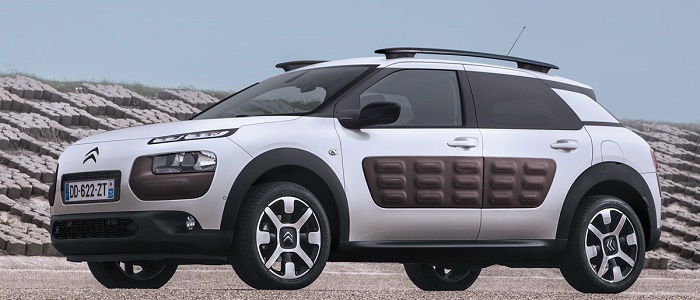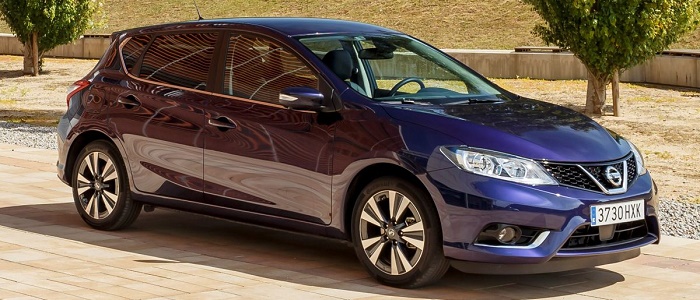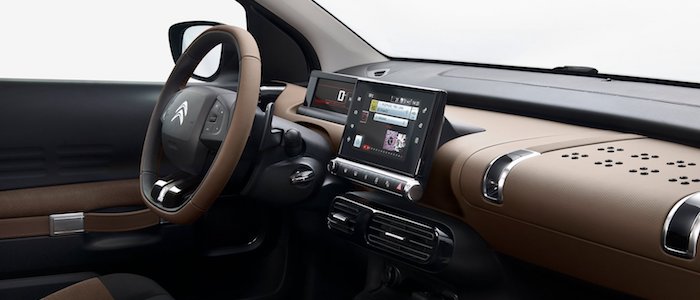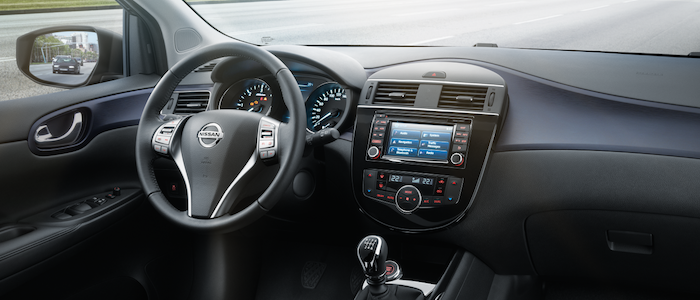Compare two cars
Compare any two cars and get our Virtual Adviser™ opinion
Dimensons & Outlines
Check vehicle history
Engine
1.5 dCi K9K 865
Performance (manual gearbox)
Performance (automatic gearbox)
Expenses
Virtual Adviser's™ opinion
We are here considering two somewhat similar cars, but we can't deny some of the obvious differences. For a start, they are not even classified under the same segment, with the Citroen being a suv and the Nissan representing small family car vehicle class. The first one has a Peugeot-engineered powertrain under the hood, a 4-cylinder, 8-valves 99hp unit, while the other one gets its power and torque from a 4-cylinder, 8-valves 110hp engine designed by Renault.
SafetyThe first thing to look into here would be the results from European New Car Assessment Programme (Euro NCAP) tests performed on the two cars. Good thing is that both vehicles got tested, with the Nissan being a slightly better choice apparently. Moving further on, let's take a closer look at some additional safety-related facts. The first vehicle is a suv which already provides a serious advantage over the small family car competitor, at least that's what statistics show. On the other hand, when it comes to weight, a factor that most people underestimate, the Japanese car offers a considerable difference of 16% more metal.
ReliabilityI don't like generalizing things when it comes to reliability, although it does seem that Nissan does have a slight advantage, all the models observed together. These are the official statistics, while our visitors describe reliability of Citroen with an average rating of 4.0, and models under the Nissan badge with 4.3 out of 5. The same official information place C4 Cactus as average reliability-wise, and Pulsar is more or less at the same level.We should definitely mention that owners of cars with the same powertrain as the French car rank it on average as 4.2, while the one under the competitor's bonnet gets 4.3 out of 5.
Performance & Fuel economyCitroen is a bit more agile, reaching 100km/h in 0.9 seconds less than its competitor. Still, it lacks the power to win the top speed competition, topping at 184 kilometers per hour, 6km/h less than the other car. When it comes to fuel economy things look pretty much the same for both cars, averaging around 3.4 liters of fuel per 100 kilometers (84 mpg), in combined cycle.
Verdict
Nissan appears just a bit more reliable, although the difference is truly marginal. The most important thing when deciding between any two vehicles should always be safety, both passive and active. In my opinion, everything taken into account, the Japanese car offers significantly better overall protection, taking the lead here. When it comes to performance, both vehicles provide similar experience, so I wouldn't point any of them out. the French car still consumps less fuel, which needs to be taken into consideration. At the end, as much as I'd like to give you a winner here, it's simply a pure tie if you ask me. In any case that's my personal view, built upon all the data available to me. What should decide here though is the way you feel about the two vehicles, and I hope you'll find my guidelines useful in the process. I suggest you spend two more minutes in order to find out which car, based on your needs and budget, would be picked by the virtual adviser™, out of 12.000+ vehicles we currently have in our database.



































